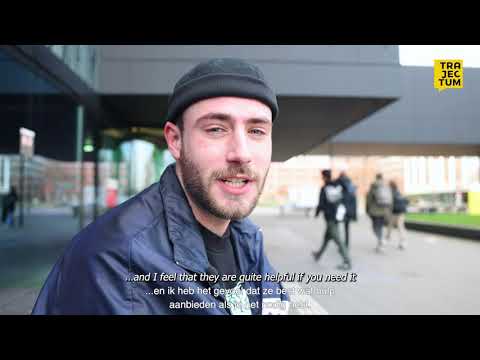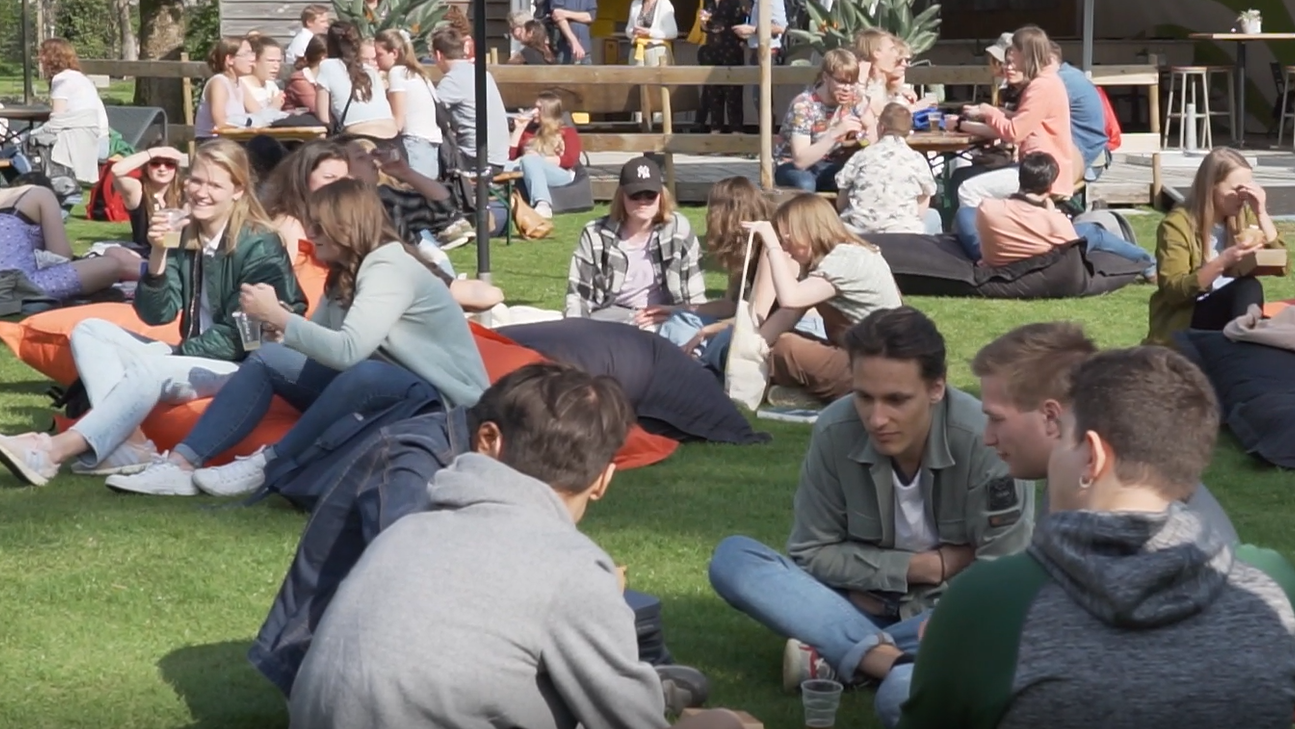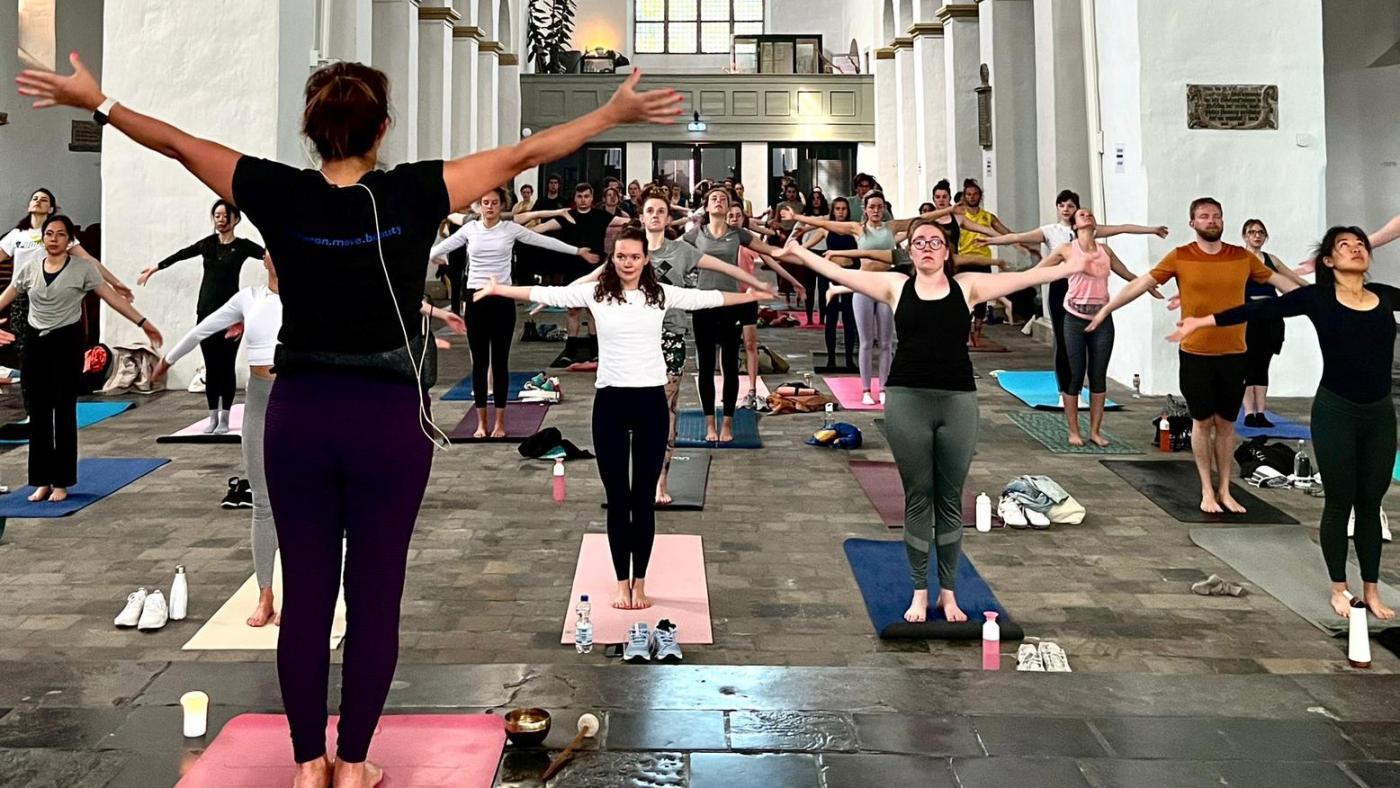The two institutions don't collaborate much in that regard
Do UU and HU students know where to get mental health support?

Students from the University of Applied Sciences (HU) and Utrecht University (UU) have a lot in common. They are often roommates and rub shoulders in the same sports clubs and student societies. They struggle with many of the same problems and sources of stress, such as the housing shortage, climate change, breakups, addiction, and loneliness, to name but a few.
Despite all the similarities, UU and HU have separate support facilities when it comes to students' mental health. The themes of the workshops and services offered are similar and both educational institutions have psychologists in their payroll to help students. “It’s true that most of our offer is for our students. In some respects, the needs of a UU student are different from those of HU students,” says student wellbeing policy officer Simon Bloo. “Nevertheless, we've been working together more and more often. We participate in meetings with the municipality together, we collaborate with the Neighborhood Team, and we've been striving to coordinate more and more joint activities.”
Wellbeing Week is an example of such a collaboration. UU organises two such weeks yearly, one of them in the autumn, when HU is also holding its wellbeing week. Therefore, some of the activities are open to students from both institutions. Last November, for example, HU organised an event called Fit Body and Mind, a day with lectures, workshops and panels that were also open to UU students. At UU, the programme includes events like Finding your Own Zen, Self-defense, Climate Stress, and Learning to Sleep Better.
Why don’t the university and HU join forces more often on courses, activities and coaching? “The money we receive for the Student Support Centre (SSC) is supposed to benefit HU students as directly as possible, which is why many activities are not accessible to UU students,” explains Femke Noordhoek, from SSC. “Besides, we are still discovering how we can improve our collaboration. Some of our activities are already open to HU students,” adds Simon Bloo from UU.

Students enjoying the Student Festival that took place at the Botanical Gardens during the 2022 edition of UU's Wellbeing Week. Photo: DUB
These are UU's resources in the realm of student wellbeing
Courses
The university has ten courses in the field of student wellbeing. They are not just about dealing with bad circumstances but also about how to organise one's life to prevent problems. Think of conscious and effective working, finding your Ikigai (source of meaning), tackling stress, meditation, energy management, and dealing with perfectionism. In addition, there are four training sessions featuring psychological counselling. They show you how to revert a negative self-image or fear of failure, how to manage stress, and how to be more mindful. The intake interview for these courses costs 25 euros. The Faculty of Humanities has a pilot with preventive training and workshops on aspects of professional development such as dealing with work-related stress and the pressure to perform, learning to make choices and setting priorities.
E-health programs
The university's wellbeing site features an overview of nine international programmes offered by Caring Universities. They are offered by six universities and two universities of applied sciences, which also offer additional assistance if needed. They allow students to increase their knowledge about mental health issues and thus prevent problems. Themes include Relax to understand and control stress, GoodEnough, Learning how to deal with perfectionism, and LifeHack (how to optimise your life and prevent procrastination). Each course lasts four to seven weeks and takes about thirty minutes per week.
Activities
In addition, the university offers four activities for students to relax and meet new people: a Meditation Lab every Thursday; a Mindful nest at Educatorium, where students can meditate in a soundproof room; online mindfulness sessions, and a free online matching platform called Eat with Students For Dinner, where students can host dinner parties or sign up to join a dinner party by someone else.
Meaningful conversations
As a student, you can talk to a coach or peer coach. You can choose from twelve UU specialised counsellors to talk about issues that concern you, ranging from heartbreak to loneliness and fear of the future. You can also walk as you talk to them, and you have a choice of seven companions.
It is also possible to participate in group sessions to talk to other students about grief, loneliness or being gifted. Finally, you can go for a walk with a group of students, thanks to a partnership between UU and the organisation Frisse Gedachtes.

Yoga session at Janskerk. Photo: UU
Help from outside the university and HU, accessible to everyone
If you don’t want to make use of the facilities and services offered by the university or HU, there are other options. There is a Neighborhood Team that meets four times a week on Bolognelaan where you can ask questions about money, housing, education, and mental health. If you are not feeling like your best self and you prefer to talk about it anonymously, you can also contact the Oké Support Line. The Jados Foundation helps students who have questions about autism. For serious psychological or addiction problems, you can go to WachtVerzachter and the Jellinek Advice Line. Neither of them has a waiting list. A holistic coach also offers students five free sessions to achieve a "healthy lifestyle".
HU's Resources in the realm of student wellbeing
E-health modules
Instead of binging Netflix, HU students and staff can spend an evening scrolling through the free online courses offered by the Mirro Foundation. Their HU account grants them access to 23 modules ranging from topics like loneliness, alcohol, self-confidence, and discipline. For example, in the module "Fear and Panic", you'll learn about your fears and how to stay on top of them. In another module, titled "Worry", you''ll learn to revert negative thoughts. These modules are only available to the HU community.
Courses
If these modules are not enough for you, you can also attend five wellbeing-related courses and workshops organised by HU’s Student Support Centre (SSC), dedicated to themes like grief and self-compassion. They are not accessible to UU students, either as the self-help courses are paid for by Hugs, the fund for community building and student involvement.
Podium
If you prefer an option that makes you get off your couch, try Podium, a cultural student platform that organises one-hour meetings about life questions. Next spring, there will be sessions about friendship, fear of failure, and mourning. And, finally, some good news for UU students: almost all of Podium’s events are open to external guests as well. Podium aims to reach 75 percent of HU students on average, mixed with other target groups as they believe it contributes to the quality and impact of the events, which are organised in collaboration with the Student Support Centre.
For the retired
VOM (the Association for Former HU Employees, formerly Oud Goud). The group consists of retired employees who volunteer to lend a listening ear to students. A dean, learning team supervisor or SLB member can refer HU students to this service. They first have to go through an intake interview to express their preferences (male, female, English-speaking or Dutch-speaking). Only then will they be linked to a pensioner. The encounters are supposed to last for one year, but the guidance can be extended.
This article is the result of a collaboration between DUB and Trajectum, the independent news outlet of the Utrecht University of Applied Sciences.